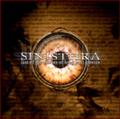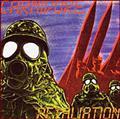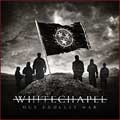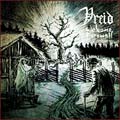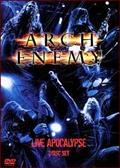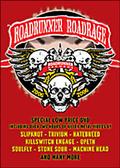THE POODLES (se) - Metal Will Stand Tall (2007)
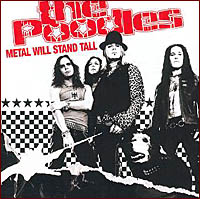
Label : AFM Records / Underclass
Sortie du Scud : 29 Janvier 2007
Pays : Suède
Genre : Hard Rock FM pour chien
Type : Album (Réédition)
Playtime : 14 Titres - 42 Mins
Quand on y réfléchit, mais quelle idée grotesque et ubuesque de nommer son groupe THE POODLES, les caniches en français ? Comme on dit, le ridicule ne tue pas. Mais dans une carrière musicale à l’échelle internationale, ca peut largement handicaper un groupe ! J’imagine déjà la conversation de deux adulateurs du groupe:
- Hey, tu vas au concert des Caniches ?
- Bah, bien sûr et toi ?
- Comment rater ca ! En plus, sur cette tournée, à ce qu’il paraît, ils arrivent sur scène avec des caniches en laisse ! Trop fort… On se croirait dans Wayne’s World… En pire.
À part ca, THE POODLES est un groupe d’Hard Rock FM suédois, mais ça on s’en fout royalement… Allez, un peu de sérieux !
Ce quatuor plutôt expérimenté (musiciens de TALISMAN, LIONS SHARES) jouit d’une solide réputation dans son pays alors que certains de leurs membres ont collaboré avec des sommités du Hard (la musique, pas le genre cinématographique) tel que MOTORHEAD, WHITESNAKE, ALICE COOPER, THIN LIZZY et leurs collègues suédois de EUROPE et CANDLEMASS ! Une belle brochette de groupes pour une jolie carte de visite avec tous ces groupes prestigieux… Aussi, Metal Will Stand Tall est leur premier album où THE POODLES s’évertue à jouer un Hard Rock FM très convenu et des plus classique. La recette proposée est archi éculée : des titres d’Hard FM directs, aux refrains ultra mémorables «Night Passion», des mélodies ultra faciles «Metal Will Stand Tall» et sa rengaine bête comme un caniche «made of steel we fight like an eagle in the sky», fallait y penser, des chœurs, des ballades sirupeuses et adipeuses comme «Echoes From The Past» avec un refrain taillé pour les stades ou «Song For You». Bref les Suédois dégainent toute l’artillerie possible pour nous embrigader dans leur secte canine à la gloire du clébard le plus con de la planète… C’est à se demander s’ils ont réellement collaboré avec les groupes cités plus haut. Peut être font-ils tout simplement de la musique exclusive pour chien ?
En plus, pour un premier opus discographique, la bande de Jakob Samuel (chant) ne s’embarrasse pas avec pas moins de deux reprises : «Lie to Me» de BON JOVI et le titre «Dancing With Tears in My Eyes», une reprise de ULTRAVOX (groupe anglais de Pop Electro New Wave des années 80), un titre à sauver au côté de «Rockstar».
Quant au son et à la production c’est certes du propre, bien léché (normal pour des caniches !). Les quatre compères jouent bien et avec enthousiasme et concupiscence mais on s’ennuie ferme. En conséquence, leurs morceaux soit disant les plus nerveux sonnent comme des pétards mouillés. Quitte à écouter du Hard Rock, autant se faire de bons vieux AEROSMITH, VAN HALEN, WHITESNAKE ou SCORPIONS : on sera mieux lotis. Cela dit, une chose est sûre : j’avais bien honte dans le métro en écoutant THE POODLES à l’idée que quelqu’un se dise : ah, on dirait qu’il écoute les caniches…Wharf, wharf…
Ajouté : Jeudi 22 Mai 2008
Chroniqueur : Loki
Score :  
Lien en relation: The Poodles Website
Hits: 10477
|





